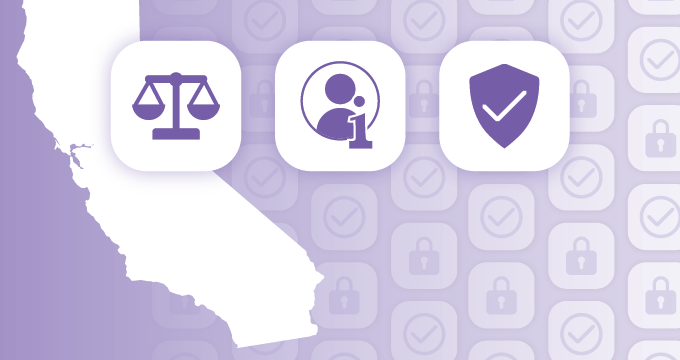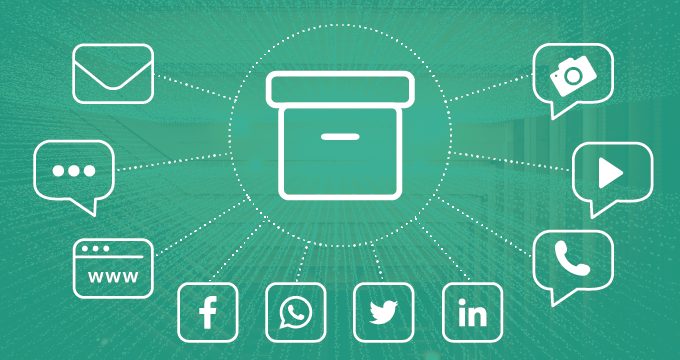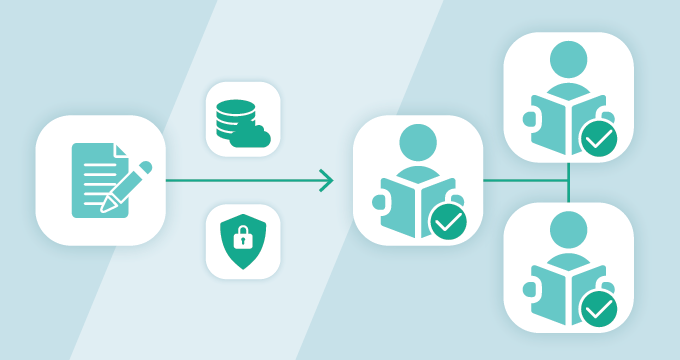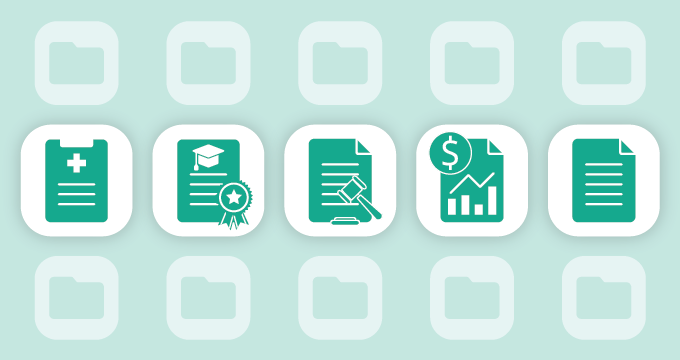The California Consumer Privacy Act (CCPA) impacts businesses within California and sets a precedent for how personal information is handled across the United States.
Understanding and complying with the CCPA is important for businesses to maintain trust, avoid legal penalties, and safeguard consumers’ privacy rights.
Whether you are an IT Director, Compliance Officer, or CIO, this article will help you understand CCPA compliance and data retention.
Understanding the CCPA
The California Consumer Privacy Act, enacted in 2018, was designed to enhance privacy rights and consumer protection for California residents. It represents a significant shift in the landscape of privacy law in the United States, similar to the European Union’s General Data Protection Regulation (GDPR).
The CCPA is not just limited to businesses based in California, It applies to any business, regardless of location, that collects personal information from California residents and meets certain criteria.
The CCPA grants California residents several key rights concerning their personal information:
- Right to know — Residents have the right to know about the personal information a business collects about them.
- Right to access — They can access the personal information held by businesses.
- Right to delete — Residents can request the deletion of their personal information from a business’s records.
- Right to opt-out — They have the option to opt-out of the sale of their personal information.
- Right to non-discrimination — Businesses must not discriminate against residents who exercise their CCPA rights.
To comply with the CCPA, businesses are required to provide notices to consumers at or before the point of data collection and create mechanisms for responding to consumer requests for data access, deletion, and opt-out of the sale of their personal information.
CCPA penalties for non-compliance
The penalties for non-compliance can be significant, ranging up to $7,500 per intentional violation, not to mention the potential for reputational damage.
For instance, the first CCPA settlement involved a $1.2 million fine against Sephora. This case centered around Sephora’s failure to disclose to consumers that it was selling their personal information, not processing user requests to opt out of such sales, and lacking clear mechanisms for consumers to opt out.
Businesses must ensure clear and accessible opt-out mechanisms and policies and keep up with the evolving definitions and expectations under privacy laws.
Data Retention: The Cornerstone of CCPA Compliance
Understanding the importance of data retention in the context of CCPA is essential. This involves storing consumer data and being aware of how long and why it is retained.
Businesses must balance keeping data for operational purposes and adhering to the CCPA’s data minimization principles.
A robust data retention framework is key to efficiently handling consumer information requests and staying prepared for regulatory scrutiny.
Establishing a CCPA-compliant data retention policy
To comply with CCPA, businesses must formulate clear, documented guidelines on data retention. This includes specifying the duration for which different data types are stored and the rationale behind these decisions.
The policy should encompass secure disposal mechanisms for data that has reached the end of its retention period, ensuring that it is permanently and safely deleted.
Documentation is key. The retention policy must be readily available for staff training, compliance audits, and as evidence of adherence to CCPA mandates.
Regular reviews and updates to the retention policy ensure continuous alignment with evolving CCPA regulations.
Examples of data types subject to CCPA
- Personal identifiers — Includes names, email addresses, social security numbers, and other similar information.
- Internet activity — Covers browsing history, search history, and information on a consumer’s interaction with a website, app, or advertisement.
- Geolocation data — Precise geographic location information derived from technologies like GPS.
- Employment-related information — Relates to a consumer’s job application, employment history, or employee status.
- Educational records — This category includes a student’s grades, transcripts, class lists, schedules, identification codes, and financial information.
- Biometric information — This includes fingerprints, faceprints, and voiceprints, which are used for unique personal identification.
- Commercial information — Covers records of personal property, products or services purchased, obtained, or considered, or other purchasing or consuming histories.
Implementing CCPA-compliant Data Retention Strategies
Here are practical steps businesses can take to align their data management practices with CCPA requirements:
Identifying and classifying data under CCPA
- Conduct a comprehensive data inventory to identify what personal information is being collected, stored, and processed.
- Classify data based on its type, sensitivity, and the applicable CCPA requirements.
- Understand the context of data collection to determine the appropriate retention period and compliance needs.
Technology solutions for CCPA compliance
- Leverage technology solutions like data management systems and archiving tools to streamline data retention and access.
- Implement security measures to protect stored data from unauthorized access or breaches.
- Use automated tools for regular data audits, ensuring ongoing compliance with CCPA retention policies.
Employee training and awareness programs
- Develop training programs for employees to understand the importance of CCPA compliance and the role of data retention.
- Regularly update staff on changes to data privacy laws and internal data retention policies.
- Encourage a culture of data privacy and security within the organization.
Regular audits and compliance checks
- Schedule routine audits to review and ensure compliance with data retention policies.
- Assess the effectiveness of data management systems in responding to consumer data requests.
- Keep track of evolving CCPA regulations and adjust data retention strategies accordingly.
By implementing these strategies, businesses can comply with legal requirements and reinforce their commitment to protecting consumer privacy.
Responding to Consumer Rights Requests
Your organization should have the systems and procedures to respond to these requests promptly and accurately. Use this list as a guideline for handling consumer rights requests.
Understanding different types of consumer requests
- Recognize the variety of requests that can be made under CCPA, such as requests for access to personal information, requests for deletion, and opt-out requests.
- Ensure clarity in understanding what each type of request entails for proper and compliant fulfillment.
Efficient handling of access and deletion requests
- Implement processes to quickly and accurately address access and deletion requests.
- Establish clear internal guidelines for responding to these requests within the time frame set by CCPA.
Documentation and tracking of consumer requests
- Maintain comprehensive records of all consumer requests, including the nature of the request, the date it was received, and the actions taken in response.
- Documentation is crucial for compliance verification and for addressing any disputes or audits that may arise.
The role of archiving software in CCPA compliance
Utilizing archiving software, like Jatheon, is a key factor when responding to CCPA requests effectively. Archiving solutions can significantly streamline the data retrieval and management process, making it easier to locate and handle consumer data swiftly and accurately.
This is particularly useful for:
- Quickly retrieving data — Archiving software allows for the fast and efficient retrieval of specific data, which is essential when responding to access requests.
- Secure data management — Jatheon provides secure storage and management of personal data, ensuring that consumer information is protected as per CCPA requirements.
- Compliance auditing — Ensuring that all actions taken with consumer data are in line with CCPA regulations.
- Efficient deletion processes — When deletion requests are made, archiving software can help ensure that all copies of the data are identified and removed in compliance with the CCPA.
Summary of the Main Points
- The California Consumer Privacy Act (2018) was designed to enhance privacy rights and consumer protection for California residents.
- The CCPA is not limited to businesses based in California, but applies to any business that collects personal information from California residents, regardless of location.
- Under the CCPA, California citizens have the following rights: the right to know which information businesses collect and store about them, the right to access that information, the right to request deletion, the right to opt out, and the right to non-discrimination when handling requests.
- Businesses must balance data retention for operational purposes and adhering to the CCPA’s data minimization principles.
- Businesses need to create, revise, and adhere to a data retention policy.
- To create a data retention strategy, companies need to identify and classify data under CCPA, employ tech solutions to automate CCPA compliance as much as possible, train employees, and conduct regular audits and compliance checks.
- Archiving software is a key factor for CCPA compliance, as it allows organizations to store data securely, locate it easily, provide access to data subjects, and remote personal information if a deletion request comes up.
Stay compliant with all data retention regulations with Jatheon’s archiving solution, allowing you to archive all communication and protect your data.
FAQ
What are the main rights granted by the CCPA to California residents?
The CCPA provides key rights such as the right to know about personal information collected, the right to access their information, the right to delete personal information, the right to opt out of the sale of their information, and the right to non-discrimination for exercising these rights.
How important is data retention for CCPA compliance?
Data retention is crucial for CCPA compliance as it ensures businesses store consumer data appropriately and only for as long as necessary. This balances the need for operational data use with the obligation to protect consumer privacy.
How can archiving software assist in CCPA compliance?
Archiving software like Jatheon helps efficiently manage data retention and retrieval, secure stored data, facilitate compliance auditing, and streamline responding to consumer rights requests under CCPA.
What are some examples of CCPA non-compliance fines?
Notable cases include Sephora’s $1.2 million fine for failing to disclose the sale of consumer data and Turo Inc.’s $1.7 million fine for not properly processing user opt-out requests and lacking transparency.
Read Next:Navigating Document Retention Policy and Managing Requests for Production |











